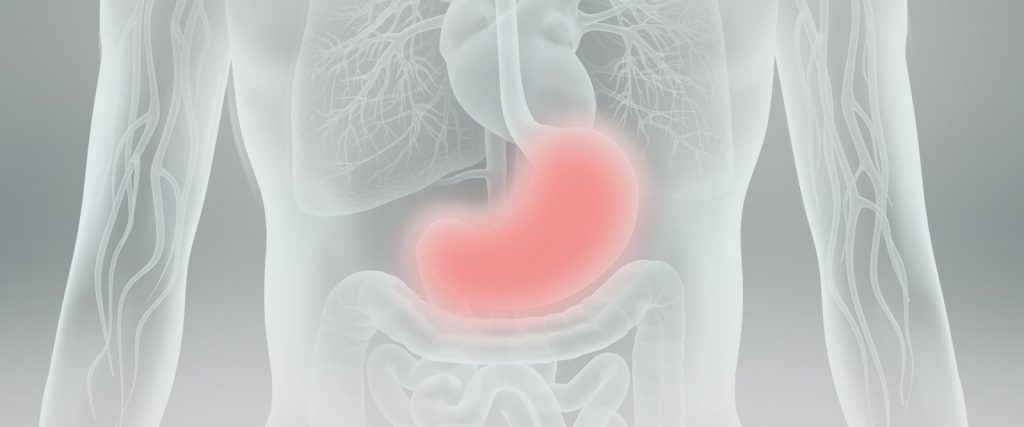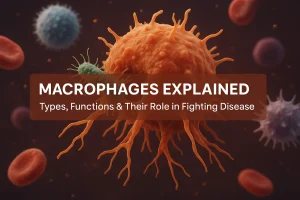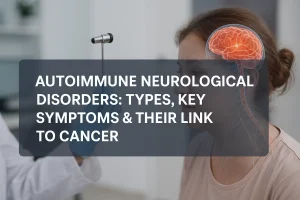
Stomach Cancer Symptoms
Stomach cancer, also called gastric cancer, is a major health concern that starts in the stomach lining. Spotting symptoms early can lead to faster treatment. This easy-to-understand guide will help you spot potential signs of stomach cancer. Let’s look at some of these symptoms.
1. Early Stomach Cancer Symptoms
The initial signs of stomach cancer may seem minor and be mistaken for less serious issues. Identifying these early signs are key.
a. Indigestion and Heartburn
Many people experience indigestion and heartburn, often due to food choices. But, constant indigestion and heartburn that don’t improve with common medications could be an early stomach cancer sign. It’s due to irritation of the stomach lining by the growing tumor causing more acid.
b. Quick Satiety
Feeling full fast after beginning to eat can be early satiety, another early symptom. The tumor may block or disrupt the stomach’s normal operation, causing this.
c. Mild Nausea
Persistent mild nausea without a clear cause could be another stomach cancer sign. This symptom can come and go and may not be severe enough to warrant concern, but it shouldn’t be overlooked.
d. Loss of Appetite
Losing interest in food, especially if it leads to unintentional weight loss, can be a stomach cancer indicator. The changes the cancer creates in the stomach environment bring about this symptom.
2. Advanced Stomach Cancer Symptoms
Stomach cancer worsens over time, and its symptoms become more severe. Recognizing these late stage signals can help you seek prompt health care.
a. Stomach Pain
End-stage stomach cancer often causes stomach pain. This pain, usually sharp or a dull throb, tends to stay in the upper belly and often gets worse after eating.
b. Vomiting
If you’re frequently vomiting, and there’s blood present, it’s a grave stomach cancer sign. You’re likely bleeding from the tumor, which is a medical emergency requiring immediate attention.
c. Sudden Weight Loss
Regardless of a regular food intake, severe weight loss that can’t be explained is a common sign of various cancers, including stomach cancer. Such weight loss can be quick and unsettling.
d. Swallowing Trouble (Dysphagia)
When a tumor gets large enough to block food through the stomach, you might experience dysphagia or difficulty swallowing. This could lead to feelings of choking, coughing, or food feeling stuck.
e. Bloating After Small Meals
Advanced stomach cancer might cause a bloated feeling and discomfort even after eating a little food. This can disrupt normal digestion.
3. Other Stomach Cancer Symptoms to Watch For
Besides these main signs, stomach cancer might trigger various diverse symptoms.
a. Fatigue
Constant tiredness or an overall feeling of weakness might be experienced by stomach cancer patients. This happens due to the energy used by the body to fight off the cancer cells.
b. Anemia
Anemia, marked by a low red-blood-cell count, could result from internal bleeding prompted by the tumor. Anemia can involve pale skin, breathlessness, and feeling faint.
c. Changes in Bowel Habits
Changes in bowel movements, like constipation or running to the toilet often, might happen. Such changes occur as the cancer impacts your digestive system, and its food processing ability.
d. Jaundice
If stomach cancer impacts the liver, it can lead to jaundice. Yellowish skin and eyes, dark pee, and light stools indicate jaundice. This is a critical condition requiring sudden medical care.
4. Risk Factors and Prevention
Knowing the risks tied to stomach cancer puts prevention within reach. Some risks can’t be avoided, but others are within our control. We can take steps to limit our chances of developing this disease.
a. Age and Gender
Stomach cancer is often seen in those over 50, and men face more risk than women. Regular medical check-ups and screenings are key for spotting problems early, particularly for higher-risk age groups.
b. Diet and Lifestyle
Eating a lot of salty, smoked, or pickled foods can boost the risk of stomach cancer. On the flip side, a diet packed with fresh fruits, veggies, and whole grains can help lower it. Saying no to tobacco and cutting back on alcohol are also key steps to prevent it.
c. Family History
Having relatives with stomach cancer ups your own risk. Those with family histories of the disease should consider genetic counseling and regular screenings.
d. Helicobacter Pylori Infection
This bacterium doesn’t play. An infection with Helicobacter pylori significantly raises the risk for stomach cancer. It triggers chronic stomach-lining inflammation, which can lead to cancer. Treating the infection with the right antibiotics can lower this risk.
e. Previous Stomach Surgery
Those who’ve had stomach surgery, like for ulcers, might face a greater stomach cancer risk. Regular medical check-ins are vital to catch any problems early.
5. Diagnosis and Staging
Spotting stomach cancer early makes treatment more effective. There are various tools and procedures to find and stage this disease.
a. Endoscopy
In an endoscopy, a doctor feeds a flexible tube with a camera (endoscope) through the mouth to the stomach. This allows the doctor to check out the stomach lining and take any needed tissue samples.
b. Imaging Tests
Imaging tests like CT scans, MRI, and PET scans show how far the cancer has spread.
c. Biopsy
A biopsy gives a closer look at the stomach lining. This involves taking a small tissue sample for examination under a microscope. This confirms whether cancer is present and identifies its type and grade.
d. Blood Tests
Doctors use blood tests to look for anemia and other issues that might point to stomach cancer. These tests can also check for tumor markers, like carcinoembryonic antigen (CEA) and CA 19-9, to monitor the disease’s progression.
e. Staging
Staging is the process of assessing just how far cancer has spread. It’s key to planning the best treatment strategy.
6. Treatment Options
Stomach cancer care varies. It is based on disease stage, the patient’s health, and their choices. We have different treatments, each carrying pros and cons.
- Surgery is a chief option for localized stomach cancer. The aim is tumor and nearby tissue removal. Surgery types are: Partial Gastrectomy – Removing the stomach part with the tumor. Total Gastrectomy – Taking away the whole stomach. Lymph Node Removal – Detaching nearby lymph nodes to stop cancer spread.
- Chemotherapy involves drugs to control or kill cancer cells. It can precede surgery (neoadjuvant chemotherapy) for tumor shrinkage or follow after surgery (adjuvant chemotherapy) to eradicate remaining cancer cells.
- Radiation Therapy employs high-energy rays to kill cancer cells specifically. Frequently, it’s teamed with chemotherapy to boost potency. It’s typically used for advanced stomach cancer or when surgery isn’t viable.
- Targeted Therapy uses drugs that only aim at cancer cells, leaving healthy cells untouched. These drugs inhibit cancer cells’ growth and spread.
- Immunotherapy strengthens the body’s immunity towards cancer. Meds known as immune checkpoint inhibitors aid the immune system in identifying and fighting cancer cells. This is a hopeful method for some stomach cancer types.
Also Read: Immunotherapy vs. Chemotherapy: What’s the Difference?
Living with Stomach Cancer
It’s tough living with stomach cancer. But with the right care and support, a good quality of life is achievable. To manage the disease effectively, one must consider several issues.
- Nutritional Support: Proper food is vital, especially post-surgery. A dietitian can curate a customized meal plan that suits nutritional needs and brings least discomfort. Small, frequent meals and avoiding irritable foods are often advised.
- Pain Management: Pain control is crucial for stomach cancer care. Various meds and therapies exist for pain and improving comfort.
- Emotional Support: Cancer diagnosis brings emotional stress for patients and families. Counseling, support groups, and mental health services can offer emotional assistance and coping tactics.
- Follow-Up Care: Regular check-ups with the medical team are essential for tracking disease progress and managing side effects. This includes regular physical check-ups and tests.
Also Read: Approved Medicine For Stomach Cancer
Conclusion
The fight against stomach cancer sees hope, thanks to advanced treatments like immunotherapy. Denvax India stands as a leading immunotherapy hospital offering top-notch cancer treatments. We play a crucial role in managing stomach cancer, especially for patients in advanced stages or with recurring disease. Immunotherapy at Denvax India is a personalized treatment. It helps the patient’s immune system fight cancer cells more powerfully. This method often results in better outcomes, less side effects, and an improved lifestyle compared to traditional treatments.
Also Read: Types of Stomach Tumors







